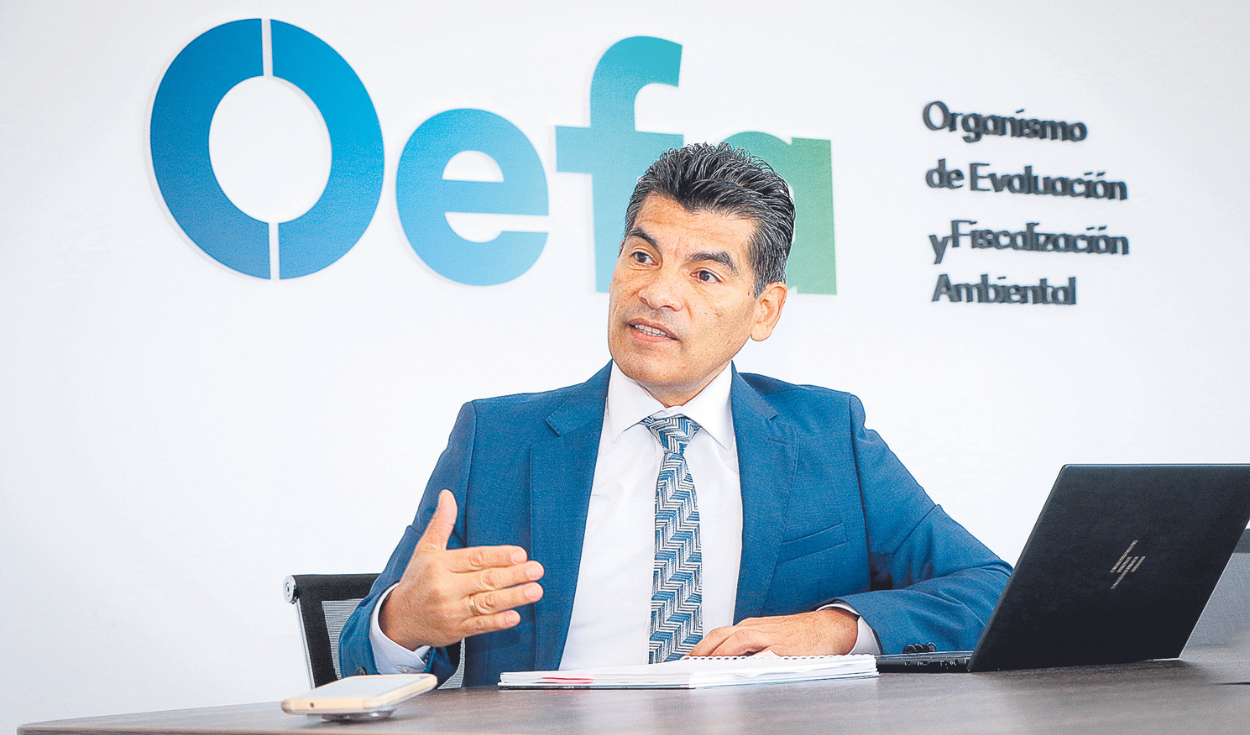
On the second anniversary of the Ventanilla oil spill, the president of OEFA, Johnny Marchanreveals that Repsol has decided to follow the path of so many other companies with million-dollar lawsuits with the State and prosecute the bulk of environmental fines imposed since 2022.
-2 years have passed since the Repsol oil spill. How much progress has been made in the area of OEFA inspection?
–We have applied 28 administrative measures since 2022, some of them already expired and others in the process of being attended to, 17 of these are still in the process of being attended to; basically, provisions such as continuous cleaning of the area. But the other 11 have deserved a different analysis: 10 not fulfilled and one fulfilled. In the first, four quite important ones stand out, referring to the fact that the company had to present rehabilitation plans until the first days of October 2023 to begin definitive cleaning and recovery work on 91 coastal formations.
-What happened then?
-The time came and Repsol presented its rehabilitation plans to the Ministry of Energy and Mines (Minem), which declared them inadmissible, I understand, for not meeting the admissibility requirements. In December, they reiterated to Minem the review of these 18 plans and again declared them inadmissible.
-How did they solve it?
-For this reason, this January, we issued resolutions in which we provide coercive fines to put pressure on Repsol and demand compliance with these administrative measures of ours, which involve presenting the rehabilitation plans. The fines reach 400 UIT, about S/2 million, which are added to the S/2.9 million also in coercive fines that we have imposed between 2022 and 2023 for failing to comply with 7 other measures.
-But that’s where the issue ended?
-No. In terms of administrative procedures, already in the sanction stage, the Environmental Supervision Court of OEFA, a second instance – because it has challenged all the measures – has issued fines equivalent to S/97 million and the rest of them have been appealed before the Judiciary.
-Does this mean that, to date, Repsol has challenged more than S/97 million from the State?
-Yeah. In the administrative instance of the OEFA we have the issuance of fines and what Repsol has done, normally, is to challenge our resolutions that have been submitted at the request of the Court, where the majority of them are being ratified. But given this ruling, what the company is doing is challenging them before the Judiciary. Everything that has been ratified has been challenged, and we are talking about about S/97 million.
-Hasn’t it been a long time, including the remediation work?
-That’s how it is. Although there is usually a lot of talk about the reopening of beaches, but OEFA is not competent [en esa materia], nor is it in the resumption of fishing in the area, which corresponds to another sector. We comply with informing society and public institutions in general about the case.
-How did 2023 end for OEFA in other cases?
-This year has allowed us to generate different regulatory reflection scenarios and based on this analysis of the environmental management instruments (IGA) we have initiated changes, which translate into expanding the supervision and inspection models to adapt them to this new reality. Today our country is different; 15 or 20 years ago the reality was different. We are in a recession and we do not want to disrupt the economic activities that may arise, but rather find tools that facilitate compliance with environmental technical standards.
-What changes await the OEFA in 2024?
-In 2024 we have the challenge of receiving the transfer of powers from 4 sectors: health, education, housing and sanitation. They are different realities and we are interested in having models that adjust to their characteristics for their inspection. The way I supervise a mine cannot be the same for public services. But without having to exonerate IGA. A complex task because these powers were before the ministries.
-There is talk of self-regulation.
-Not all sectors are prepared to enter a model like this. We wanted to start with the taps, because of the simplicity of the business: they have their IGAs and will have to make periodic reports on certain parameters. In addition, they have the possibility of handling technology without major problems, and that is why we have created an informative application that will allow them to register. The other group that can enter self-regulation is energy.
-And that would help, of course, to unlock investments.
–We do not want to be seen as a sanctioning entity only.. We focus on tools and mechanisms that promote compliance with environmental standards, even more so in a recession environment.
-But should permissions be merged to speed up?
-I think that the State’s response should be made much more agile, and when we do that, we will realize that it is necessary to merge some of them. But that will be possible if opinion depends on a single sector; and if it depends on many, it would cost time.
Source: Larepublica
Alia is a professional author and journalist, working at 247 news agency. She writes on various topics from economy news to general interest pieces, providing readers with relevant and informative content. With years of experience, she brings a unique perspective and in-depth analysis to her work.












